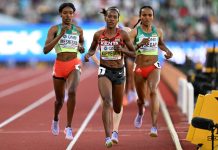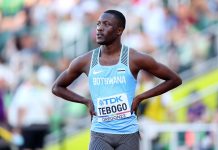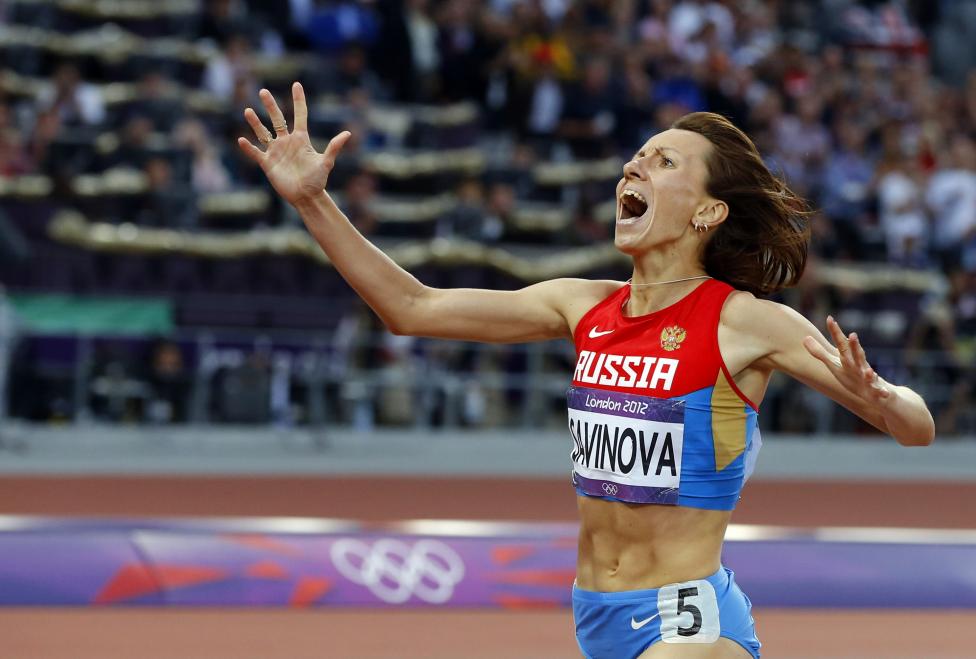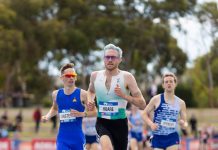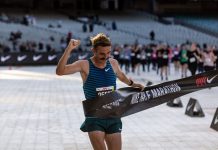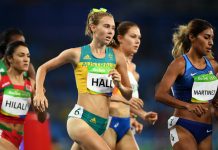Last time Sebastian Coe was in this much trouble over something that happened in Russia was when he lost the Moscow 1980 Olympic 800 metres final to Steve Ovett.
Coe was the world record holder, two seconds faster than anyone else in the field. Yet he ran a tactically inept race, hanging back in the packed field as the more physical Ovett barged his way first to a winning position and then to the gold medal.

“You ran like an idiot,” Coe’s father, and coach, Peter, told him after the race. Coach Coe’s harsh assessment was among the nicer things said about athlete Coe’s performance in the next 48 hours.
But it turned out alright for Sebastian Coe with Russia back then. A few days later, he won the 1500 metres in one of the greatest triumph-snatched-from-the-jaws-of-disaster stories in Olympic history.
Thirty-five years later, now Lord Coe and president of the IAAF, Sebastian Coe faces another massive problem with Russia, the WADA report detailing an alleged systemic doping program and IAAF tardiness in confronting it before the London 2012 Olympics as well as possible corruption by senior IAAF officials in covering it up.
On Friday night, an IAAF Council meeting conducted by video conference, invoked what its president called “the toughest sanction we can apply at this time” against the Russian federation. By a vote of 22-1 (with the Russian Council member ineligible to vote), Russia was provisionally suspended from the IAAF.
The Council further declared that if the federation did not accept voluntary suspension, the IAAF would move to a hearing to determine whether a full suspension should be imposed.
The IAAF also stripped Russia of the right to host two World Athletics Series competitions in 2016, namely the world junior championships and the world race walking team championships.
Under the provisional suspension Russian athletes will not be allowed to compete in international competitions including the Olympic Games. Participation was already threatened with WADA considering whether to declare Russia non-compliant with its anti-doping code.
Both the IAAF and WADA are demanding that Russia embarks on significant reforms before it can be restored to full competition. The IAAF announced the setting up of an inspection team headed by an independent chair and anti-doping expert, along with three IAAF Council members, to assess compliance. The new, reformed federation would have to satisfy a list of criteria before the suspension was lifted, but no timetable was given.
Interesting times, indeed. For Coe, and the sport, the crisis will not be as easily dealt with, as the 1980 one was, by a better run in the 1500.
Although action against Russia was urgently needed – the disgraceful record of its walks program almost sufficient justification on its own – it is to be hoped that such action does not punish the innocent along with the guilty.
Russia itself accepts action must be taken against the federation and the matter of government interference in anti-doping programs.
By all means, too, target test Russian athletes as a matter of priority. But I must say that I am with Sally Pearson, Liz McColgan, and others, when it comes to banning Russian athletes from competing altogether.
It is hard to see how such a ban would be fair. Whatever the number involved in systemic doping, there are clean Russian athletes, too. To penalise them along with the guilty seems manifestly unjust.
It puts clean Russian athletes in double jeopardy. Not only does the WADA code make them totally responsible and accountable for what is found in their own bodies, but now they will also suffer the consequences, for what is found in the bodies of others.
There is a ready solution for Rio 2016 already adopted by the International Olympic Committee in respect of refugee athletes. The IOC announced recently that refugee athletes with no home country to compete for would be allowed to participate in Rio under the Olympic flag.
Similarly, 16 nations who defied their government’s wishes to compete in the Moscow 1980 Games (Australia among them), took other measures such as not taking part in the Opening Ceremony, having only one representative march, or marching under the Olympic flag.
Russian athletes could likewise compete under the IOC flag in Rio. This would inevitably mean some athletes would be off the hook, but at least clean athletes would not pay the same price as the guilty ones.
What Happens Next
We should not ignore that there are signs already of a possible change in Russian attitudes (notwithstanding the initial reaction of the head of the Moscow anti-doping laboratory who labelled the WADA team “idiots” and characterised their findings as “an insane fantasy”).
Russia sent no walkers to the world championships in Beijing a few months ago, a mute (and belated) concession that the practices of its high performance road walks unit were beyond the pale. The lacklustre performance of its whole team in Beijing – four medals (two gold, one silver and one bronze), against 17 (7/4/6) in Moscow in 2013 and at the London Olympics (8-4-5) and 19 ((-4-6) in Daegu in 2011 – suggests the team may not have been ‘supported’ in the same manner as the recent past.
Russia is now making all the right noises, from the top of the Kremlin down.
Russian president Vladimir Putin this week demanded co-operation with doping authorities, saying: “The battle must be open. A sporting contest is only interesting when it is honest.”
Russian sports minister Vitaly Mutko was positive, too, in his reaction to the IAAF Council decision, telling the BBC the “problem is solvable.”

And while the IAAF and WADA were not specific on the progress expected from the new Russian Federation before lifting the suspension, International Olympic Committee president Thomas Bach told the BBC he expected Russia to “co-operate to make progress” towards being compliant with Wada to ensure participation at Rio 2016 (emphasis mine).
Mutko also declared Russia was not contemplating a boycott of Rio and remained “a dependable partner of the international Olympic movement.”
Leaving aside the issue of what would constitute an “undependable partner”, that at least was reassurance against a return to the era of boycotts, a possibility which was amazingly reckoned by the chair of UK Athletics last week as a price worth paying.
In urging the IAAF to ban Russia whatever the consequences, Warner said: “(A boycott) has to be a risk, but it’s not one that I care about.”
Four consecutive boycotts from Montreal 1976 (by African nations against New Zealand’s rugby links with South Africa), through Moscow 1980 (the Soviet Union’s intervention in Afghanistan) and Los Angeles 1984 (a retaliatory boycott by the USSR and allies), to Seoul 1988 (Cuba and Ethiopia), left the Olympic movement reeling.
To blithely dismiss a potential boycott as a risk “not worth caring about” is not something anyone involved as Olympic sport went through that era would agree with. Athletes who may get only one chance at an Olympics paid the price while precious little change occurred in the political situation.
All boycotts are worth ‘caring about’. They come at a cost, one that is never paid by the guilty parties.




